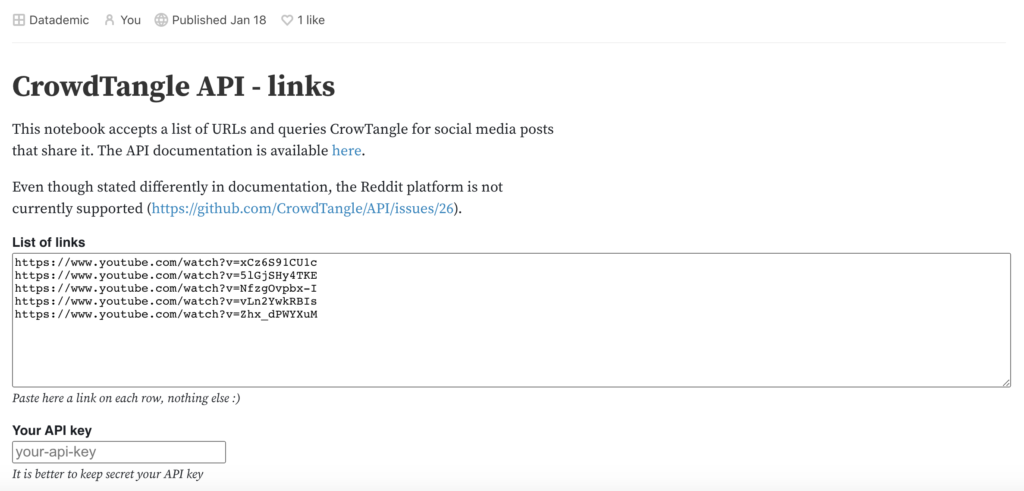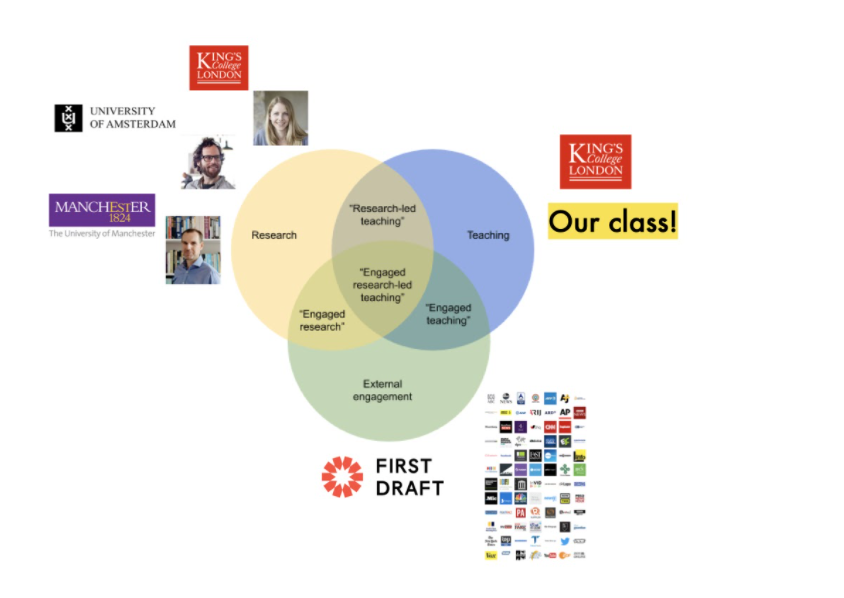A new article on “Engaged research-led teaching: composing collective inquiry with digital methods and data” co-authored by Jonathan Gray, Liliana Bounegru, Richard Rogers, Tommaso Venturini, Donato Ricci, Axel Meunier, Michele Mauri, Sabine Niederer, Natalia Sánchez-Querubín, Marc Tuters, Lucy Kimbell and Anders Kristian Munk has just been published in Digital Culture & Education.
The article is available here, and the abstract is as follows:
This article examines the organisation of collaborative digital methods and data projects in the context of engaged research-led teaching in the humanities. Drawing on interviews, field notes, projects and practices from across eight research groups associated with the Public Data Lab (publicdatalab.org), it provides considerations for those interested in undertaking such projects, organised around four areas: composing (1) problems and questions; (2) collectives of inquiry; (3) learning devices and infrastructures; and (4) vernacular, boundary and experimental outputs. Informed by constructivist approaches to learning and pragmatist approaches to collective inquiry, these considerations aim to support teaching and learning through digital projects which surface and reflect on the questions, problems, formats, data, methods, materials and means through which they are produced.



